On June 13, 2018, the Boston City Council enacted “An Ordinance Allowing Short-Term Residential Rentals in the City of Boston”. Notwithstanding the title of this Ordinance, this law actually prohibits all short-term rentals, other than those offered by individual owner-occupants of specific one, two, and three family properties. The Ordinance also establishes a registration system and specific controls on so-called “Booking Agents” involved in listing and facilitating such short term rentals. The following is brief summary of the new Ordinance.
Who can offer short-term rentals?
At its core, the Ordinance prohibits all short-term rentals, except those made in compliance with this law. A short-term rental is defined as the use of a residential unit by a person for less than 28 days. The only persons that can now offer such short-term rentals are individuals that are offering their primary residence (“Home Share” units), individuals that are offering a room in their primary residence and will remain in the unit during the rental (“Limited Share” units), and owner occupants of two and three family properties (“Owner-Adjacent” units). The Ordinance thus prohibits short-term rentals by investors and tenants. A unit is only deemed the individual’s primary residence if they have lived there, and intend to live there, nine months in the year. In addition, a “natural person”, i.e., not a corporation, LLC or Trust, may offer short-term rentals. Limitations are also imposed on the number of persons and bedrooms that may be offered (the lesser of 5 bedrooms or 10 people for units being shared by the owner, 3 bedrooms or 6 people for units in which the owner will not be present). Units which have current code violations, or which have been cited for 3 or more violations in the past six months, are disqualified from short-term rentals as are properties included on the so-called Problem Properties lists with the city. Finally licensed rooming houses, licensed bed and breakfasts, units offered under certain circumstances for persons receiving medical treatment and their families, and short-term business/institutional stays of at least ten days, are all excluded from this Ordinance.
What are the requirements for short-term rentals?
An Operator that elects to offer its’ unit for Short-Term Rental must register with the Inspectional Services Department (“ISD”). The registration is valid for one year and must include the name of the Operator, property address, relationship to unit, and confirmation of which type of Short-Term Rental is being offered. An annual fee of $25 for Limited Share Units and $200 for comply with this Ordinance carries significant daily fines and the potential for a lien to be placed on the property.
One of the primary concerns with this Ordinance is that it appears to impose liability on an owner for the wrongful conduct of a resident. Specifically, the Ordinance requires a notice of violation to be sent to the “owner” or “Operator” rather than the violator. Owners should be sure to file appeals with ISD if they are cited for violations by their tenants. Likewise, Owners should be prepared to appeal any attempt by the City to impose liens on their units for violations of this Ordinance by their tenants. Brokers and others acting as “Booking Agents” should also be careful to ensure compliance as the Ordinance appears to ban such person/entity from doing “any” business in Boston if they fail to comply with the Ordinance.
Of course, the real challenge of this Ordinance will be enforcement. ISD has already confirmed that they lack both the resources and ability to enforce this Ordinance. It will also be extremely difficult, as many owners already know, to prove that a person is “renting” their unit and not simply allowing a friend or relative to use it. In addition, while the city appears to be intending to elicit the assistance of AirBNB and other “Booking Agents”, it is unclear whether such businesses will in fact cooperate or whether owners will simply seek out new technology to avoid such disclosures.
This Memorandum is intended as a general summary of this Ordinance. Please contact our office with any questions or for any specific advice you require.
